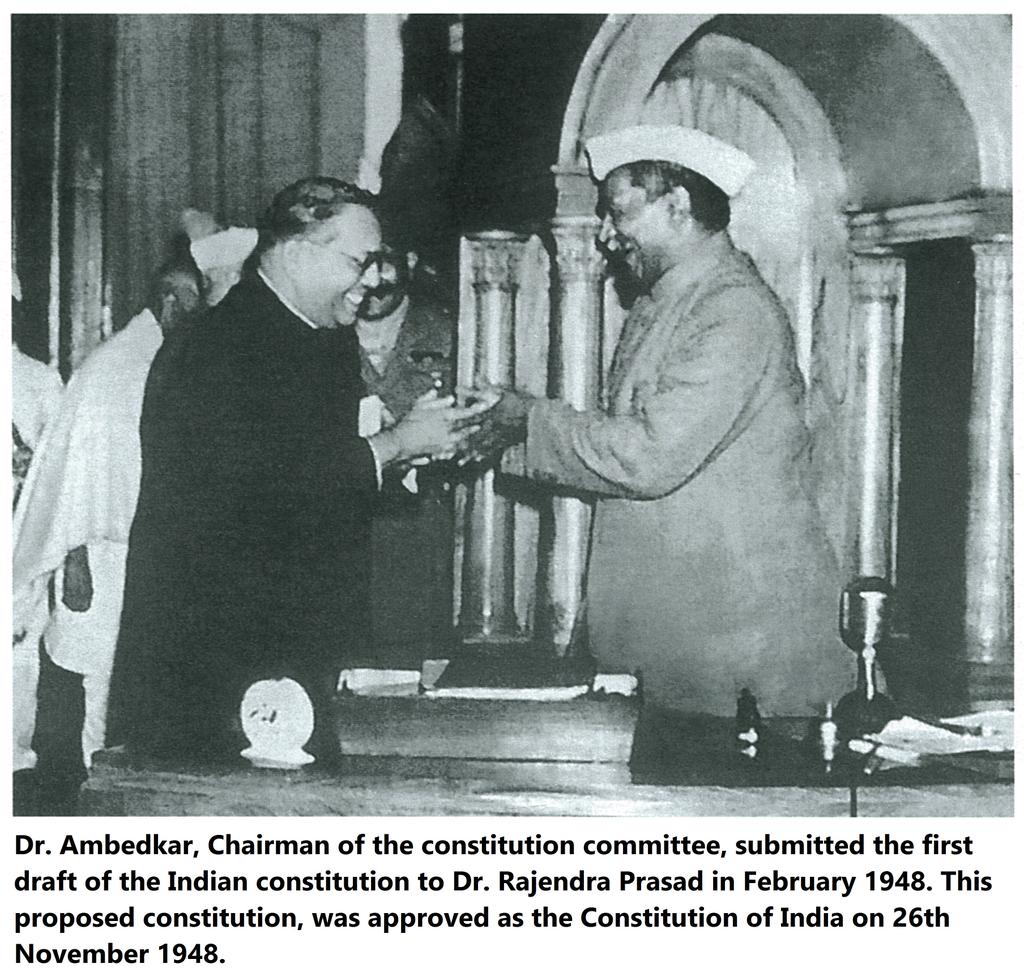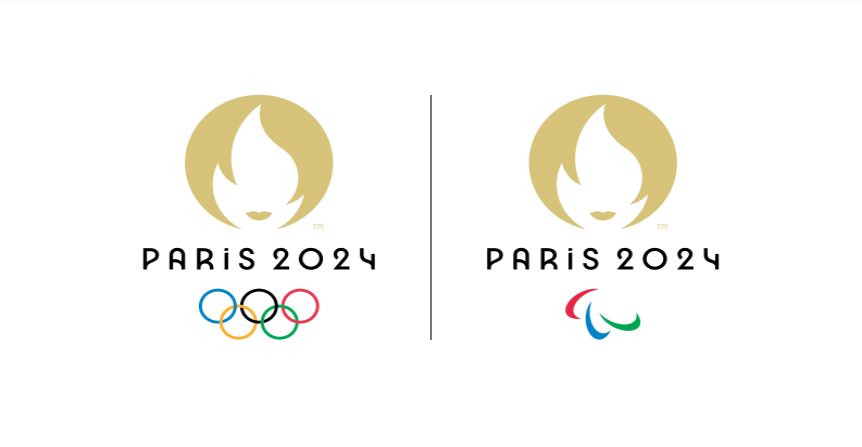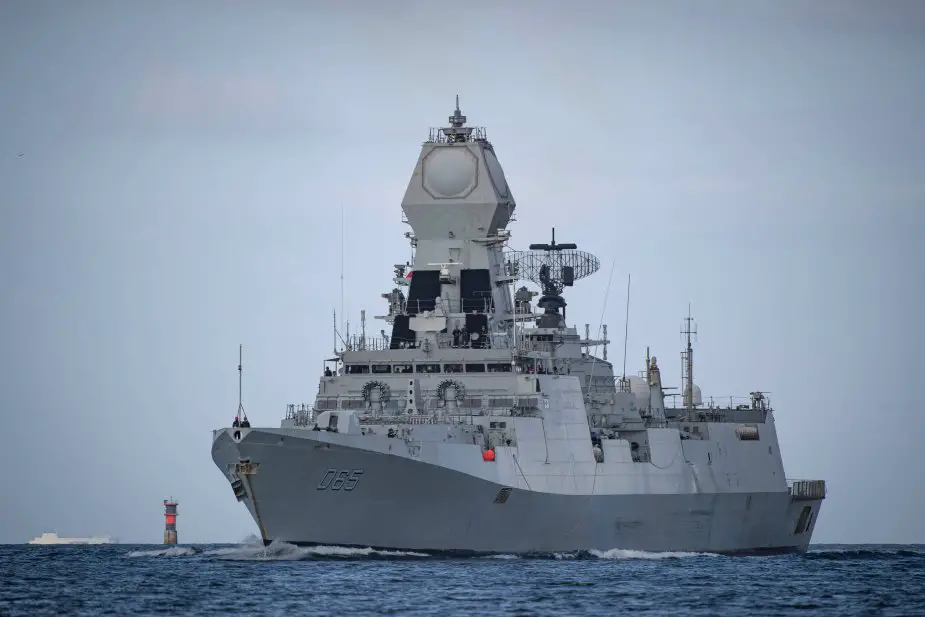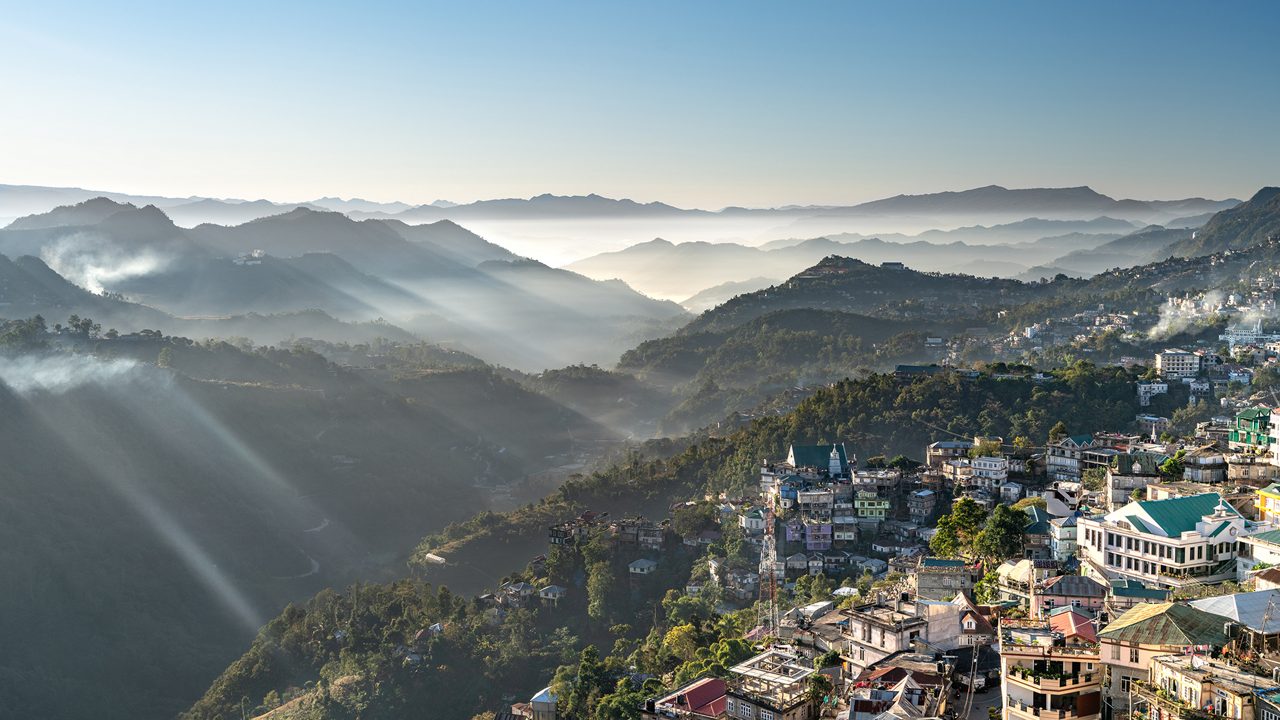Journalist and Freedom Fighter, Sailen Chatterjee recalls January 26, 1950
As a journalist freedom fighter, I had the unique privilege of witnessing historic scenes of popular rejoicing at the dawn of Independence on August 15, 1947, passing of the Constitution of India on November 26, 1949 and ushering of the Republic of India, on January 26, 1950. The Constitution adopted by the Constituent Assembly of India represented the framework of the Government of the Republic of India. The Constitution signifies the sovereignty of the people of India. Our Constitution, a unique document, sustained democracy in India. The birth of our Republic heralded the foundation for justice, liberty, equality, unity and integrity of the nation.
I recall the unprecedented scenes of popular enthusiasm, celebrations and singing of national songs on August 14-15, 1947. Gandhiji was then staying in Calcutta in pursuance of his Peace Mission. I was staying with him. Gandhiji’s presence in riot-torn Calcutta created a miracle. Hindus and Muslims, who were unable to come out of their houses for months together because of riots, for the first time forgot all their differences and came out of their houses greeting and embracing each other. The Mahatma witnessed the celebrations.
I had the privilege of witnessing the passing of the Constitution from the Press Gallery of the Central Hall of Parliament House on November 26, 1949. The Constituent assembly had met in this high-domed hall. Loud and prolonged cheers and thumping of desks greeted the passing of the Constitution. Several members shouted ‘Vande Mataram‘ and ‘Bharat Mata Ki Jai‘ in chorus.
Dr. Rajendra Prasad, President of the Constituent Assembly, in his speech before putting the motion to pass the Constitution, paid tributes to Mahatma Gandhi and said “I shall only hope that all those whose good fortune it may be to work this Constitution in future, will remember that it was a unique victory which we achieved by unique method taught by the Father of the Nation, and it is upto us to preserve and protect the Independence that we have won and to make it really bear fruit for the man in the street. Let us launch on this new enterprise of running our Independent Republic with confidence, with truth and non-violence and above all, with heart within and God above”. He called upon the people not to forget Mahatma Gandhi’s teachings.
After the Constitution was passed, the historic session of the Constituent Assembly ended with the singing of the National Anthem by Purnima Banerjee, a veteran freedom fighter and sister of the late freedom fighter, Aruna Asaf Ali.
The Constituent assembly elected Dr Rajendra Prasad as President of the Indian Republic at a special session on January 24, 1950, in accordance with the Constitution.
A Proclamation announcing the new status of India was read out by the last Governor General C. Rajagopalachari, heralding that from 26th January 1950 the proclamation said India, this is, Bharat, shall be a Sovereign Democratic Republic.
India became a Republic on January 26,1950 amidst rejoicings, fanfare of trumpets and booming of guns. A Proclamation announcing the new status of India was read out by the last Governor General C. Rajagopalachari, heralding that from 26th January 1950 the proclamation said India, this is, Bharat, shall be a Sovereign Democratic Republic. It was a memorable and proud day for the whole nation. The high-domed circular Darbar Hall of Rashtrapati Bhavan (then known as Government House) was brilliantly lit. Over 500 guests had assembled inside the hall. President Sukarno of the Indonesian Republic, his wife and several members of the Diplomatic corps, members of the Constituent Assembly and prominent citizens had graced the occasion. It was a historic occasion when free India’s first President, Dr. Rajendra Prasad, was administered the oath of his office. The Chief Justice of India, Sir Hiralal Kania, read the oath of office in Hindi. Dr. Rajendra Prasad repeated it sentence by sentence. The President was dressed in black achkan, white churidar and a white Gandhi cap.
The outgoing Governor General, C. Rajagopalachari, our first Prime Minister, Pandit Jawaharlal Nehru, beaming with pride and joy, the Deputy Prime Minister, Sardar Patel, the Iron-man of India, Cabinet Ministers, Judges of the Supreme Court and the Auditor-General of India, were present in the hall to witness this biggest national ceremony of the 20th century. Pandit Nehru and his other Cabinet colleagues were sworn-in soon after. The Speaker of Lok Sabha, G.V. Mavalankar, the first Speaker, sat in the front row.
The capital wore a festive look. People raised slogans of ‘Gandhiji-ki-jai’ and ‘Vande Mataram’. Thousands visited Rajghat, the Samadhi of Mahatma Gandhi, to pay their respectful homage to the Father of the Nation.
Outside the Darbar Hall, there were unforgettable scenes of jubilation. Large crowds of men, women and children had assembled in the forecourt of Rashtrapati Bhavan. Many of them had come from the adjoining States to witness the ceremony. The capital wore a festive look. People raised slogans of “Gandhiji-ki-jai” and “Vande Mataram”. Thousands visited Rajghat, the Samadhi of Mahatma Gandhi, to pay their respectful homage to the Father of the Nation.
In the Darbar Hall, for the first time the national emblem of Ashoka Pillar with three lions was placed near the throne where in the past the British Viceroys used to sit. Also for the first time a smiling statute of Lord Buddha was placed behind the throne. The President, Dr. Rajendra Prasad, who greeted the large gathering smilingly with folded hands, made a short speech in Hindi and English, stating that it was a memorable day in our annals. “Let us begin with offering our thanks to the Almighty Power that has enabled us to see this day, to the Father of the Nation who showed us and to the world at large his infallible method of Satyagraha and led us on along it to freedom and to the numberless men and women, whose suffering and sacrifice have rendered the attainment of Independence and establishment of this sovereign democratic Republic possible”.
The birth of the Republic was celebrated by the masses by organising prabhat pheries. The day dawned with a clear sky and sun was bright throughout the day. It was one of the coldest days in Delhi and men, women and children dressed in their best, came out to participate in this great festival. They exchanged greetings and congratulated each other for the new era that dawned under the new Constitution.
Our democracy has taken deep roots and it is the best system under which our country has made multi-faced progress. We can be proud of our achievements. We are a Nation that counts and the attention of the whole world is on us.
Our Parliament is the people’s institution. It is the mirror and the voice of the people. Generally speaking our Constitution, which gave us our new system of government and our Parliamentary system involving all upto the grassroot level has stood the test of time.
There is increasing political awareness among the masses of their rights. They have the power in their hands to throw out of office any government which they consider corrupt and working against their welfare.
In the 21st century many challenges have to be met. The curse of poverty is still there. Our main task will be to eradicate poverty. A large number of our people are still illiterate. All round efforts are needed to spread literacy in the country. A large number of our villages still do not have drinking water facility. The Governments have to seriously address this problem.
Mahatma Gandhi in the course of his post-prayer speech on January 26, 1948, only four days before his assassination, warned of the “demon of corruption” and said: “It requires a high code of morals, extreme vigilance on the part of those who are free from corrupt practices and who have influence over corrupt servants. Indifference on such matters is criminal. If our evening prayers are genuine, they must play no mean part in removing from our midst the demon of corruption.”
The manifest corruption and unholy alliance between money and mafia power must be rooted out for an all-round healthy progress of the country.
All political parties must seriously consider how best to meet these serious challenges facing our country. They should try to have a National Code of Conduct to preserve high traditions, moral values and putting an end to corruption.
Let us remember on this occasion of celebrations of our Republic the eternal message of love, brotherhood, unity and peace practiced and preached by the Father of the Nation during the last eventful phase of his life and for which he sacrificed himself.
I had the rare opportunity of reporting Mahatma Gandhi’s activities all over India as a correspondent and witnessed how he suffered and sacrificed for the welfare of the people and the country. He used to tell me : “My life is my message” Let us remember this message. Let us meet our challenges in the new century with determination, unity, sacrifice and political will.



